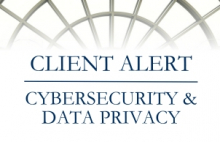Supreme Court Strikes Down Nonconsensual Third Party Releases in Bankruptcy Plans, Upending Longstanding Reorganization Tool
June 28, 2024In a decision that will have substantial impact on the owners of businesses that seek relief in bankruptcy where the business owners themselves seek releases from personal liability, the U.S. Supreme Court has struck down the validity of nonconsensual third-party releases in an opinion issued Thursday, June 27, 2024. The case arose from the bankruptcy proceedings of drugmaker Purdue Pharma, owned by Sackler family members. The decision potentially exposes the Sackler family members to personal liability relating to Purdue Pharma’s sale of opioid medications. The decision will have far-reaching effects for the owners of any company seeking relief in bankruptcy if the owner faces potential personal claims for actions of the company, as well as on plaintiffs seeking recovery for such claims.
With the Court ruling that nonconsensual third party releases are not authorized under the Bankruptcy Code, debtors now will have to seek the consent of each creditor to be bound by a nondebtor release, or allow any party not wishing to be bound by a release to opt out of such releases. Correspondingly, third parties will likely be far less inclined to contribute funds to a plan to resolve claims, thereby substantially reducing the pool of funds, if any, available for consenting creditors. Individual creditors who do not consent to releases will now have to press their claims against the non-debtors on their own. Though the real effect of the Court’s decision will be determined in the coming years, the use of third party releases likely will be substantially reduced, and mass tort claimants will have little access to a bankruptcy fund for recovery.
Nonconsensual releases of third-party claims in exchange for substantial contributions to a plan by such third parties have become a staple of bankruptcy plans for decades. Such releases have received scrutiny over the years because they can extinguish a creditor’s claim against parties other than the one that filed for bankruptcy, without that creditor’s permission and without exposing the third parties’ assets to bankruptcy administration. Such releases require a substantial majority of affected creditors to support the releases; if enough creditors support the Plan, the Plan is binding on all parties, even creditors that do not consent to the releases and voted against the Plan.
With third-party releases having been entrenched in bankruptcy practice, Purdue filed for bankruptcy in New York in September 2019 after reaching a deal with various state governments to resolve claims involving its sales of OxyContin. The bankruptcy court confirmed a chapter 11 Plan in September 2021 under which the various Sackler family members agreed to contribute over $4 billion to a trust fund to pay opioid claims. In exchange for this contribution, the Plan provided for releases to the Sacklers from all opioid liability.
The opioid plaintiffs largely supported the Plan, recognizing that payments to individuals under the Plan would be the fastest and most efficient path to any recovery on their claims. Various states and the Office of the U.S. Trustee, however, appealed the confirmation order to the Southern District of New York, which ruled in December 2021 that the bankruptcy court lacked statutory authority to grant releases of nonconsensual third-party claims against nondebtors like the Sacklers.
Purdue appealed to the Second Circuit. In an effort to resolve the appeal, the Sacklers increased their contribution to the Plan to as much as $6 billion, and the states agreed to drop their objections to the Plan, but the U.S. Trustee’s Office pressed its objections. The Second Circuit then reversed the district court decision, and the U.S. Trustee’s Office appealed to the Supreme Court.
The arguments focused on section 1123(b)(6) of the Bankruptcy Code, which allows a plan to include any “appropriate provision not inconsistent” with the rest of the Bankruptcy Code. The U.S. Trustee argued that the releases are not an “appropriate” provision because they effectively grant a discharge of liability (in this case to the Sacklers) without requiring them to submit themselves and their assets to the authority of the bankruptcy courts. Purdue noted that bankruptcy courts have approved these kinds of releases for decades, particularly when a nondebtor’s liability is closely associated with a debtor such that exposing the nondebtor to litigation brought by some creditors would reduce or eliminate funds available to other creditors.
Writing for the Court in a 5-4 decision, Justice Gorsuch reasoned there is nothing in the text of the Bankruptcy Code that authorizes the nonconsensual discharge or release of claims against nondebtors. “Confining ourselves to the question presented, the court holds only that the Bankruptcy Code does not authorize a release and injunction that, as part of a plan of reorganization under Chapter 11, effectively seeks to discharge claims against a nondebtor without the consent of affected claimants.”
If you have questions about the implications of this ruling, contact John Hall or another Lewis Rice bankruptcy attorney.










